After dropping out of three years of medical school and working at an oil and gas company, Nguyen Hung Minh Tan switched to AI research and became a lecturer at the National University of Singapore.
Minh Tan, 34, from Ho Chi Minh City, accepted the position of Assistant Professor (*) at the Department of Mathematics, National University of Singapore (NUS), in July. This is the only school in Asia in the top 10 universities in the world, according to QS Ranking 2024. The school is in eighth place.
Tan will teach and research machine learning and deep learning in artificial intelligence (AI).
"I chose Singapore because NUS's Mathematics department is very strong, ranked 13th in the world according to QS 2023. The research direction here is similar to my development direction," Tan said.
In addition, Singapore is close to Vietnam. Tan believes that this gives him the opportunity to guide students and collaborate with colleagues back home. He has led many young talents in Vietnam through the AI Residency program of large technology corporations. The two-year program supports students in researching AI and creates conditions for them to do PhDs abroad.
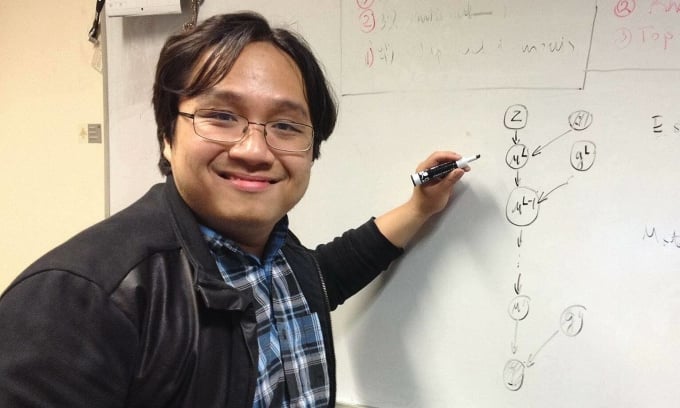
Nguyen Hung Minh Tan. Photo: Character provided
As a child, Tan was interested in Math when he read Math and Tuoi Tre magazines. Tan learned well and was continuously on the school team since primary school. In 2004, Tan passed the entrance exam to the Math specialized class at Le Hong Phong High School for the Gifted.
Tan shared that although he liked it, those were the years he studied Math just to take the exam. After not achieving the desired results, Tan decided to change direction at university. In 2007, Tan was admitted to two prestigious universities in Ho Chi Minh City, Bach Khoa and Y Duoc, and chose to pursue the path of becoming a doctor.
After studying for a year in Vietnam, Tan moved to the US with his family. He continued his medical studies at Houston Community College in Texas. However, after two years, Tan stopped again.
"I realized that I was not suited for the medical field," Tan recalled. At that time, he also thought that his English was not good enough to continue studying medicine in the US because medical students not only study in school but also have to communicate well to understand the pathology, circumstances and psychology of patients.
After researching and finding that engineering majors have good career prospects, Tan applied and won a full scholarship to study Electrical Engineering at Rice University - a school in the top 15 universities in the US according to US News.
At that time, Tan still did not have a clear vision of his career path. In the first semester, when he took three specialized classes, Tan was interested and chose Signal Processing. According to Tan, this major uses a lot of Math knowledge and has many job opportunities in large oil companies. This is also a famous training field at the school.
In addition to studying, Tan sought to improve his English. He applied for a part-time job as a cashier at a market. The job was very stressful, forcing Tan to actively listen and speak more English to resolve situations with customers. Thanks to this, Tan improved his listening and speaking skills. He could talk more easily with his friends at school and could participate in projects with his teachers.
In 2014, Tan entered his senior year of college. This was also the time when machine learning and deep learning were developing rapidly in the US. Tan studied these two fields to apply to the project and, together with his friends, successfully created a hat that could convert the wearer’s thoughts into commands to control a model car.
But right before graduating, Tan was accepted as an engineering intern at GE Oil and Gas, an oil and gas company. Not long after, the oil industry went into decline. At this time, his former professor at Rice University convinced him to return to AI research.
Tan quit his job and won a master's and doctoral scholarship in 2014.
Three years later, with his passion and the dedicated guidance of his teachers, Tan's studies went smoothly, with continuous scientific papers. But in his fourth year, Tan began to get "stuck", not knowing what to research next. He tried to explore many new areas in AI but to no avail.
"I haven't published any scientific papers in two years," Tan said, worried because this is a very important stage for a doctoral candidate. He struggled, constantly comparing his ideas with those of his professors to understand what he was lacking.
After two years of struggling without results, things became clear when Tan realized that what he lacked was a research direction. Finally, Tan decided to focus on applied mathematics and machine learning.
Since then, Tan’s work has become much easier. Tan interned at Amazon AI and NVIDIA Research, working on a number of applied problems such as AI Physics modeling, domain adaptation to learn from synthetic data, and using machine learning to make scientific discoveries. Recently, Tan used these applied problems to predict electric vehicle battery life in a collaborative project with Toyota.
This June, he completed his postdoctoral program at the Department of Mathematics, University of California, Los Angeles (UCLA), before joining the National University of Singapore.
Tan said the new job is very interesting. He gets to participate in building the program, how to help students apply what they have learned to find jobs all over the world.
"There is a lot of pressure but also a lot of motivation," Tan shared. He said he followed the teaching path because he was inspired by his mentors. Professor Richard Baraniuk at Rice University and Professor Stan Osher at UCLA gave Tan a lot of useful advice in both research and career. Witnessing their dedication and positive influence on him, Tan considered them as role models to follow.
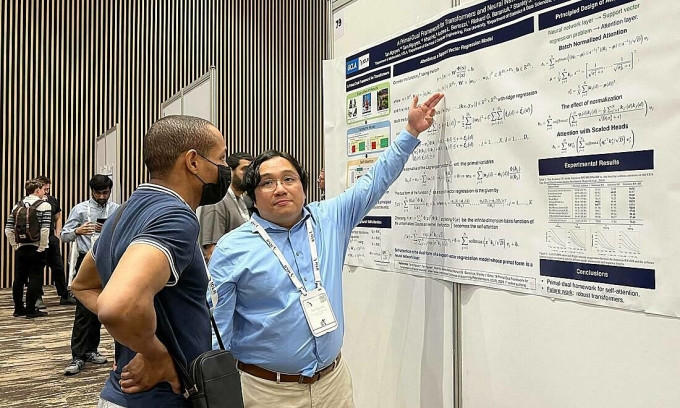
Tan at the ICLR 2023 artificial intelligence conference in Rwanda. Photo: Character provided
Ho Pham Minh Nhat, professor at the University of Texas, Austin, USA, highly appreciates his colleagues in both research and teaching.
"Tan always wants to do everything to the end and never leave things unfinished. He discovers and handles problems very scientifically. Tan is also very responsible towards students," Mr. Nhat shared.
To date, Tan has 16 articles in Q1 journals (the most prestigious group of journals in a field). Tan's future research direction is to combine many methods in applied mathematics such as optimization, differential equations, or statistics, to explain machine learning models used in artificial intelligence applications. He also returns to Vietnam regularly to guide students with his colleagues.
Looking back on his journey, Tan says each environment taught him valuable lessons. In medical school, he learned the virtue of diligence. Rice University taught him how to be an independent researcher. At UCLA, he learned how to be productive and do impactful research. Also in these two places, by working with colleagues from many countries, Tan learned the value of diversity in research and life.
He believes that young people need to be proactive, curious, hardworking, constantly renew their thinking and have confidence in themselves.
“Nothing comes easy,” Tan said. He believes that most people are not geniuses, so these qualities are key to success, especially when faced with obstacles.
Khanh Linh
*Assistant professor is the first of three levels of professors in the US.
Source link


![[Photo] Prime Minister Pham Minh Chinh receives Mr. Jefferey Perlman, CEO of Warburg Pincus Group (USA)](https://vstatic.vietnam.vn/vietnam/resource/IMAGE/2025/4/18/c37781eeb50342f09d8fe6841db2426c)

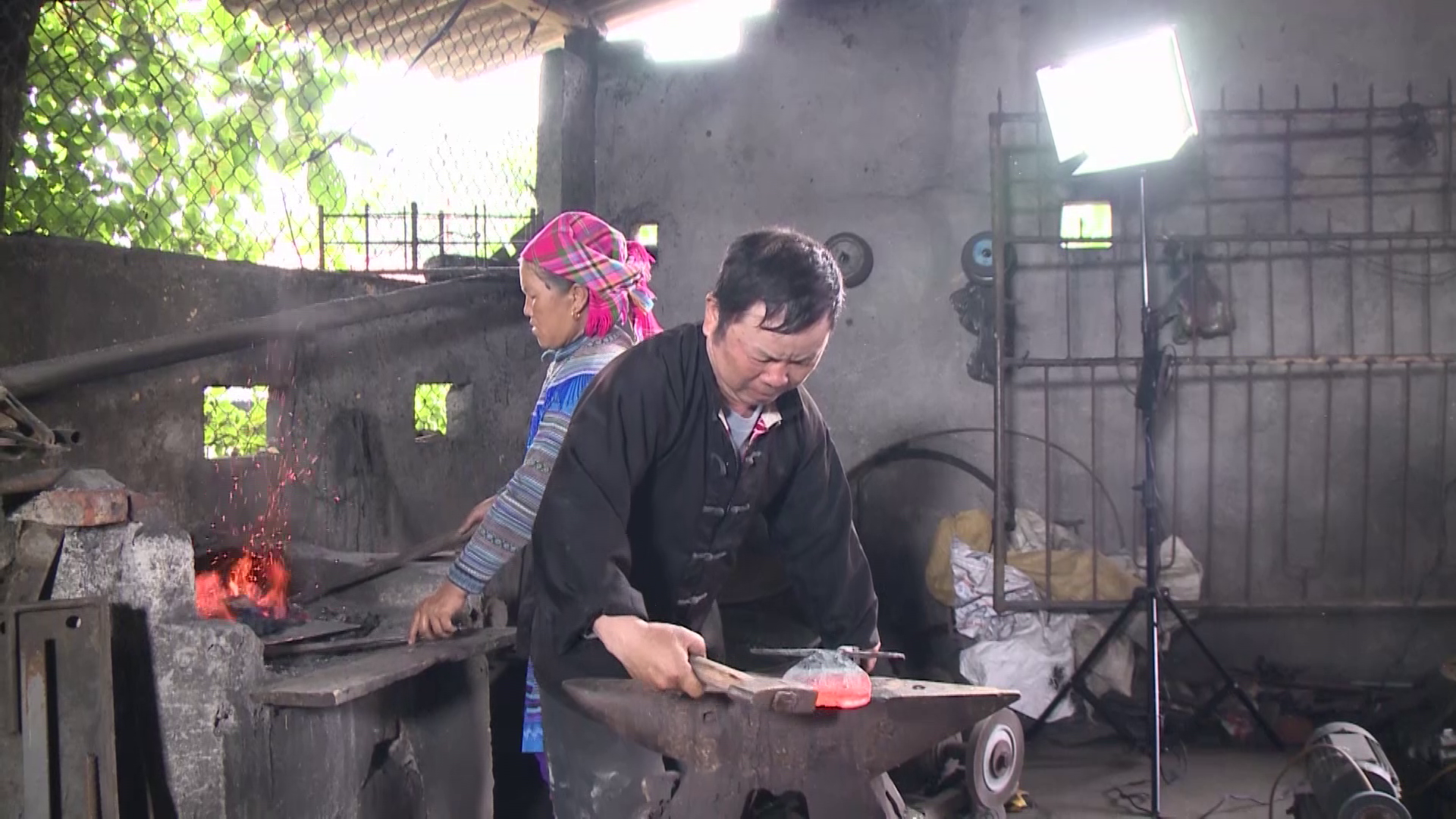


![[UPDATE] April 30th parade rehearsal on Le Duan street in front of Independence Palace](https://vstatic.vietnam.vn/vietnam/resource/IMAGE/2025/4/18/8f2604c6bc5648d4b918bd6867d08396)
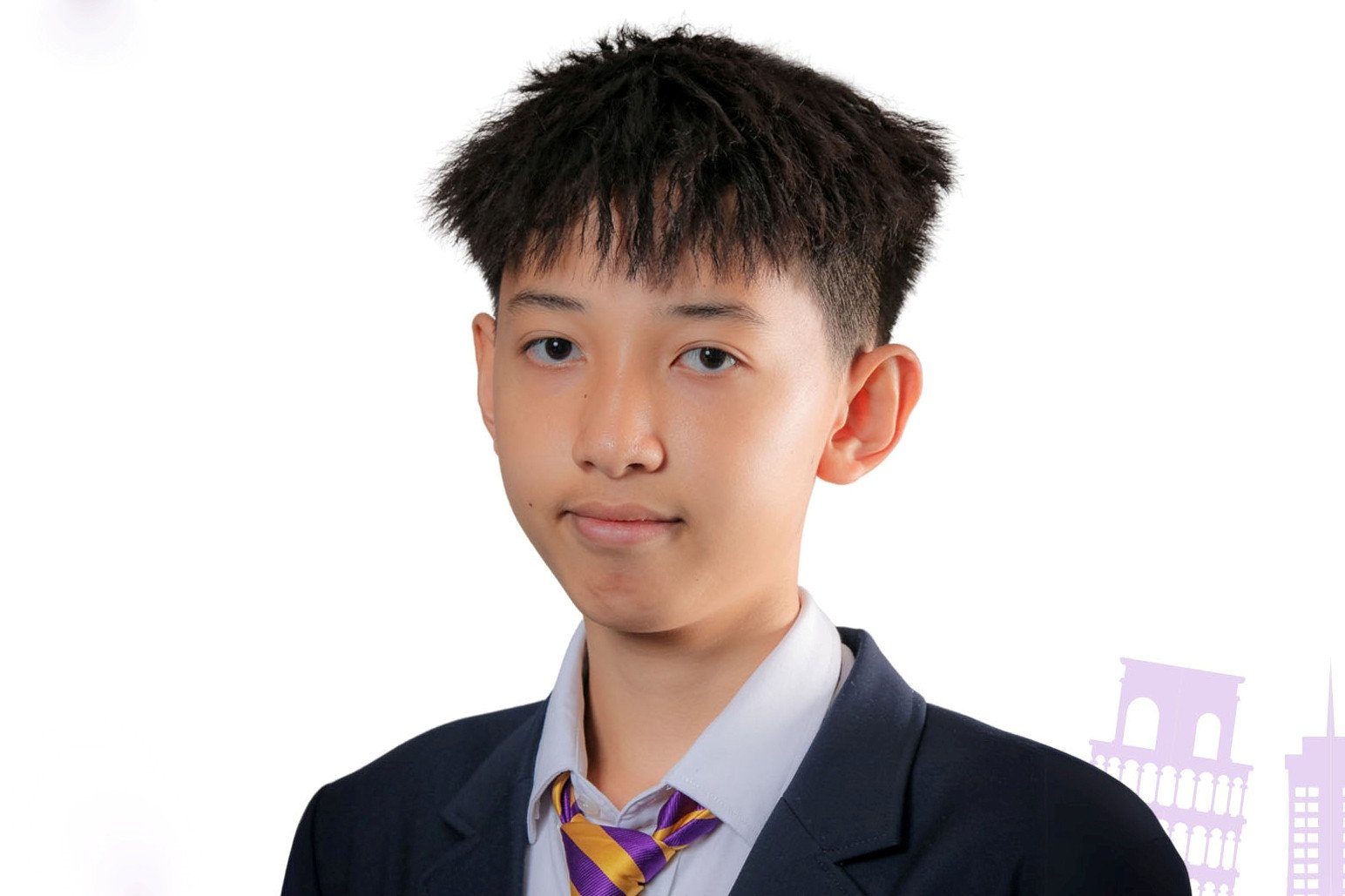



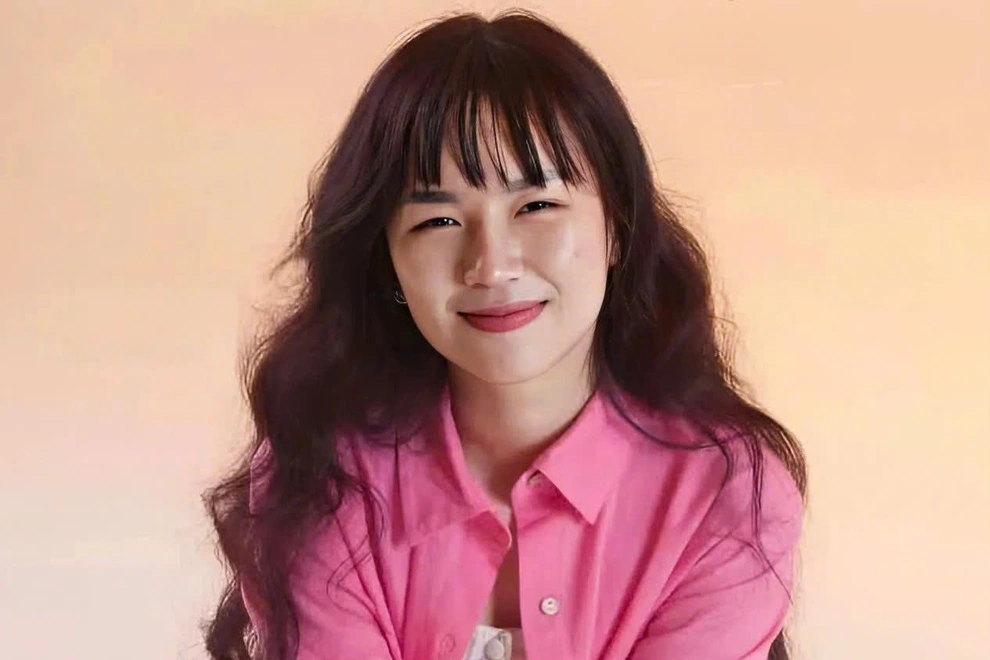

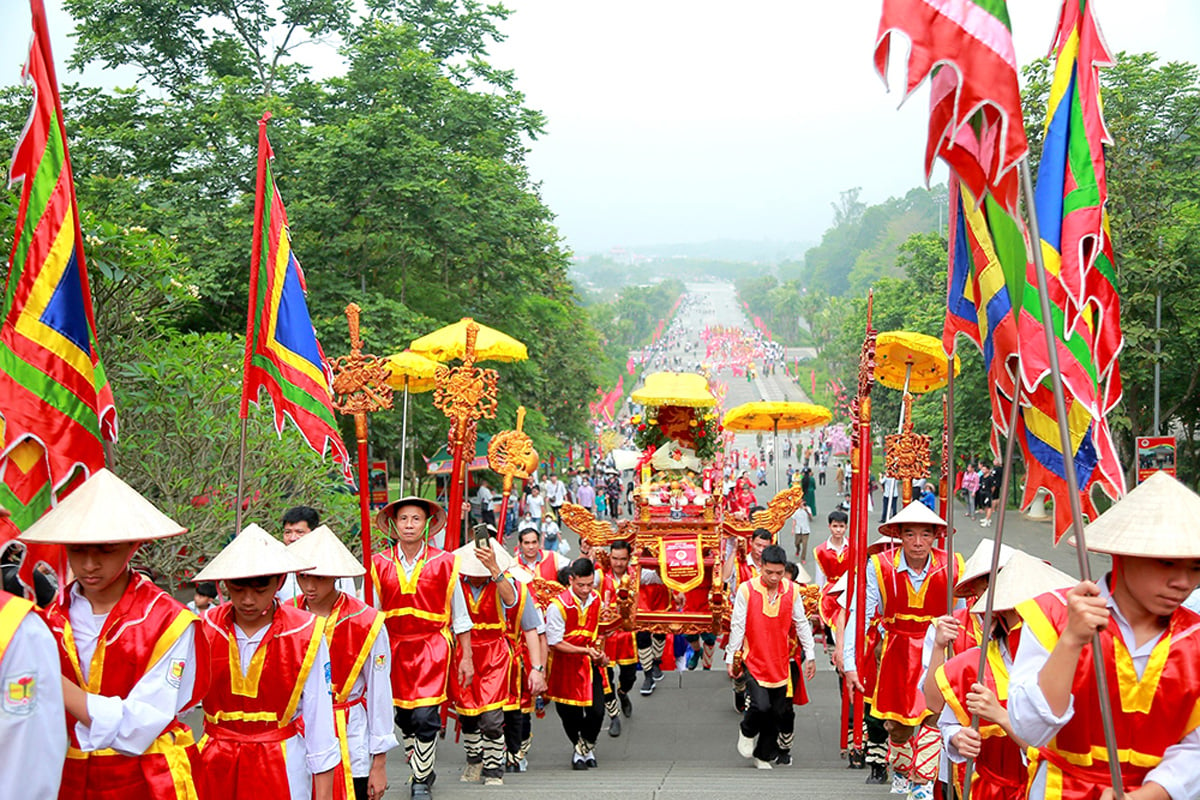

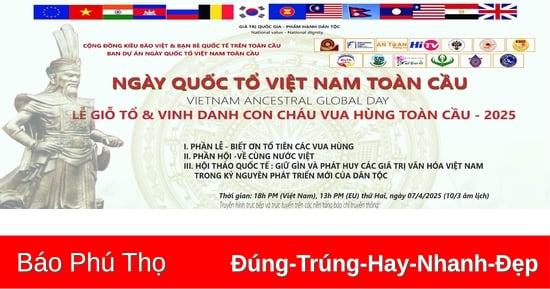



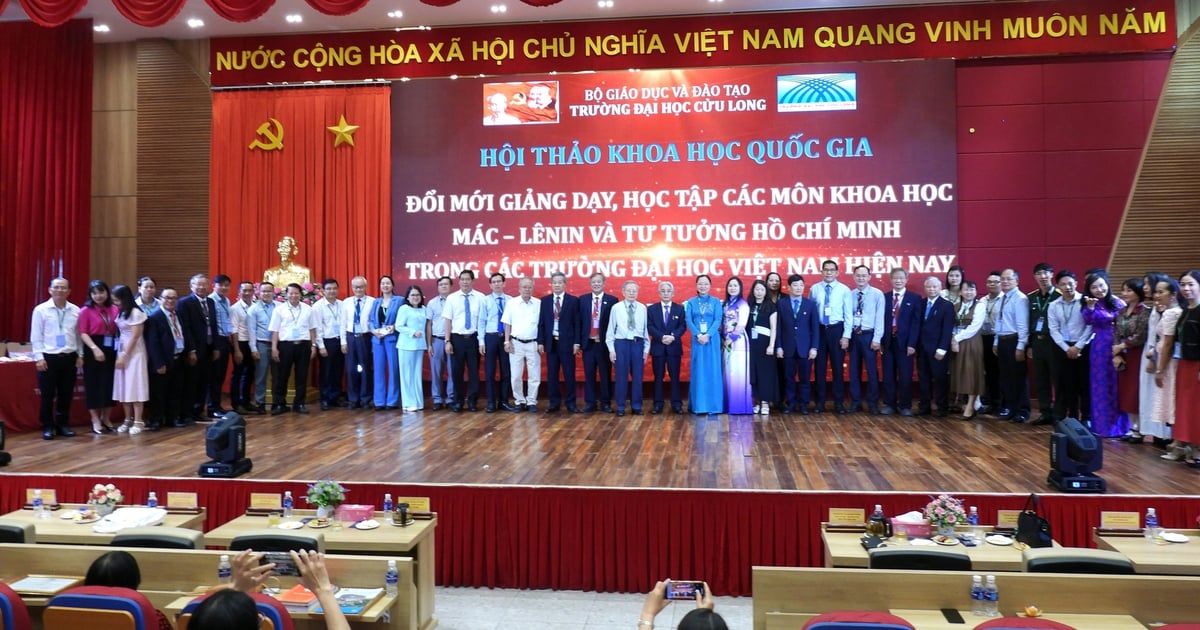
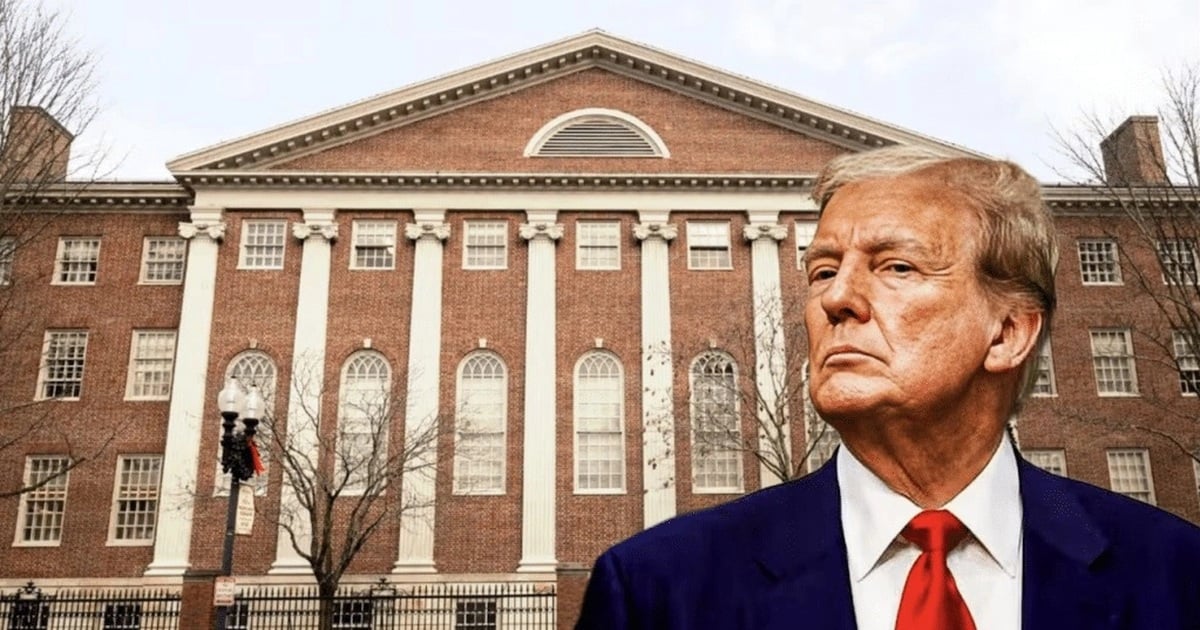
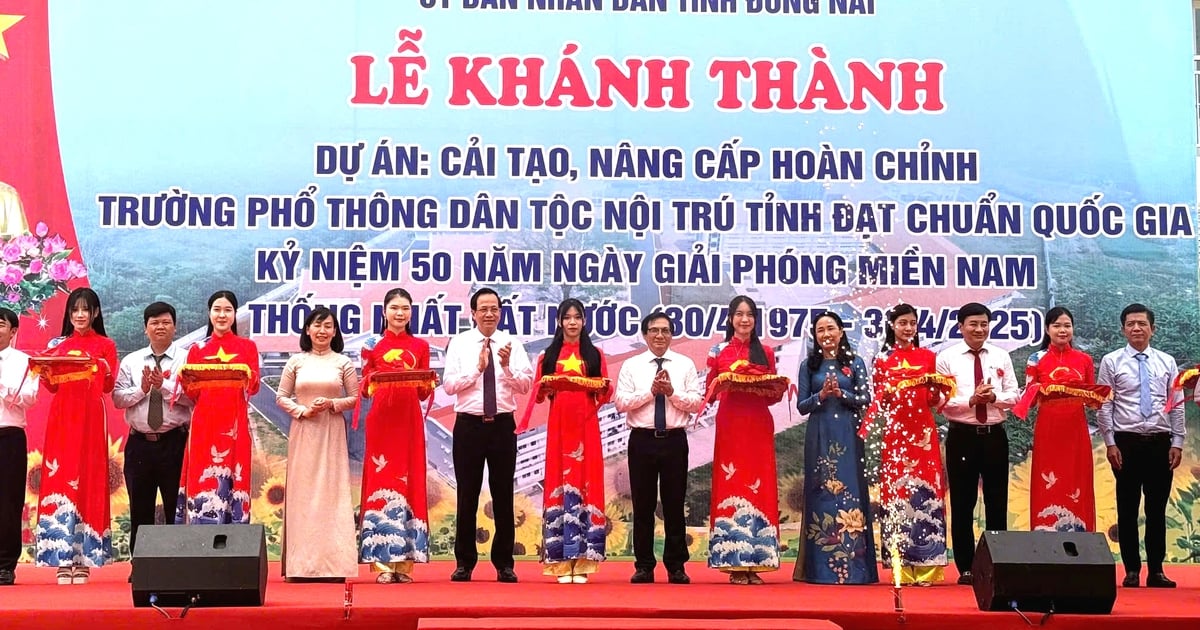
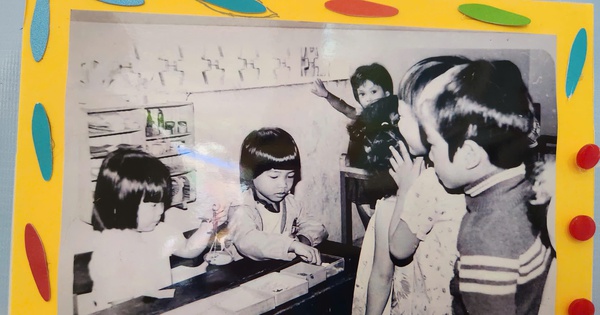
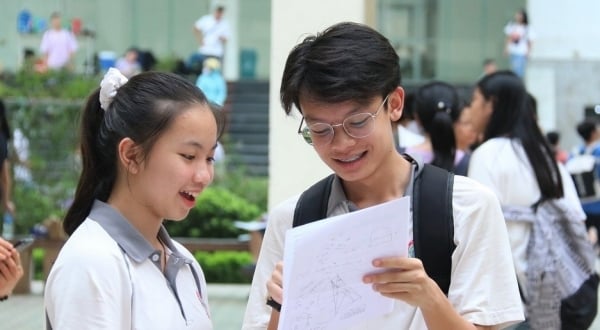
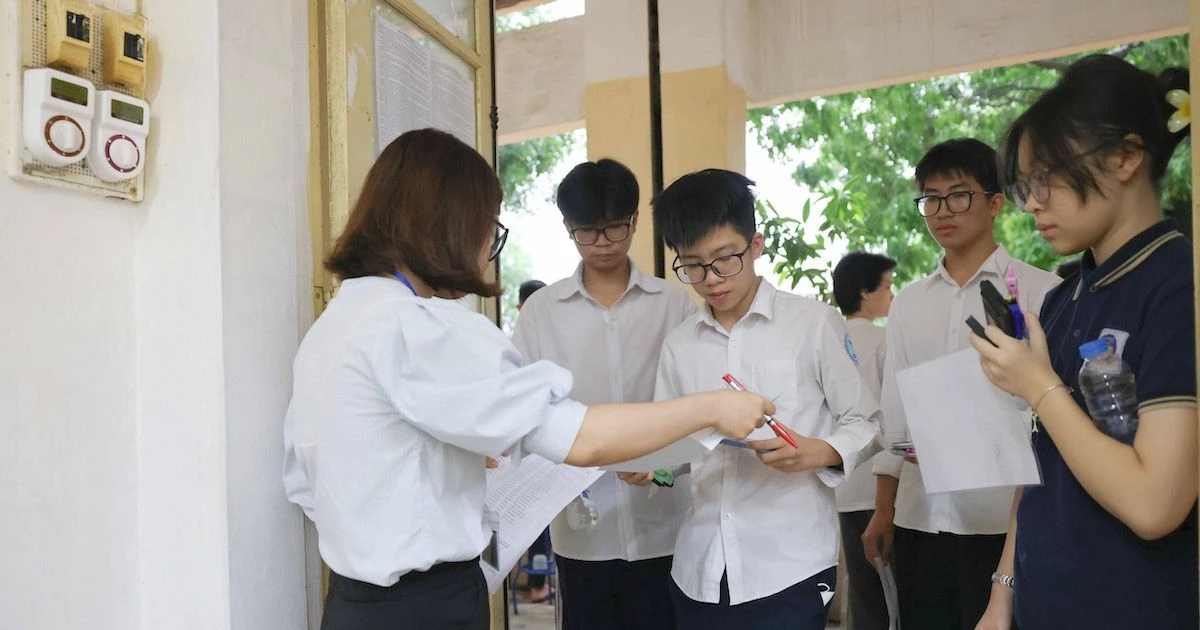












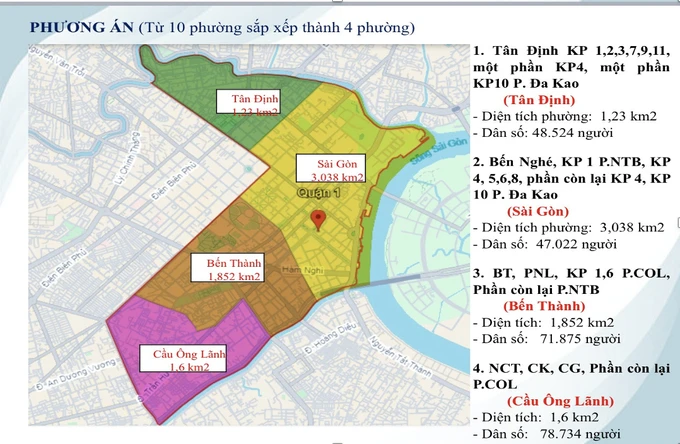



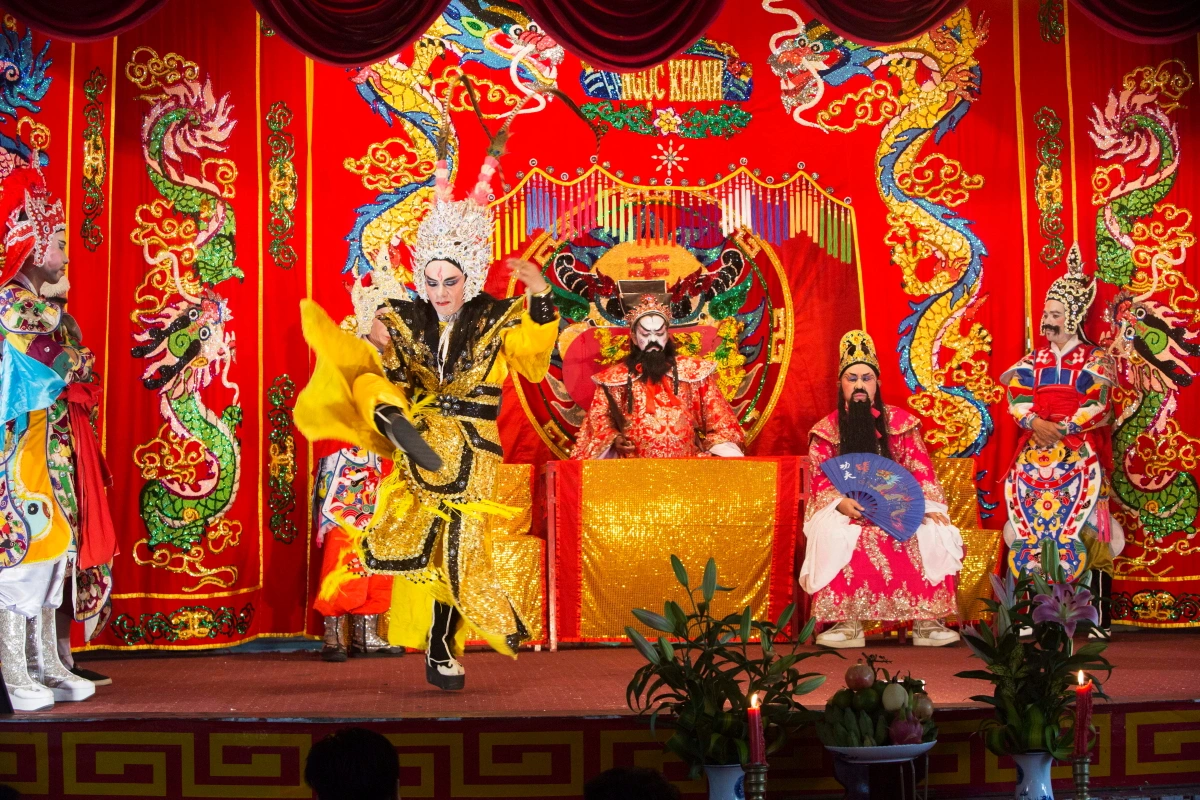

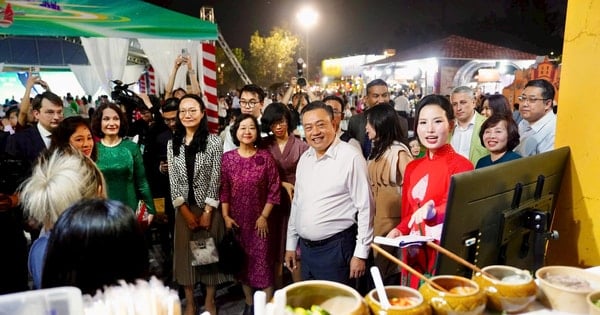

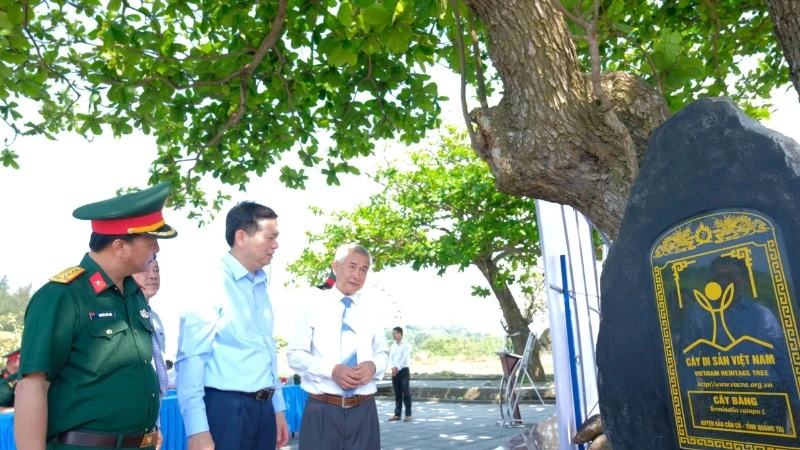






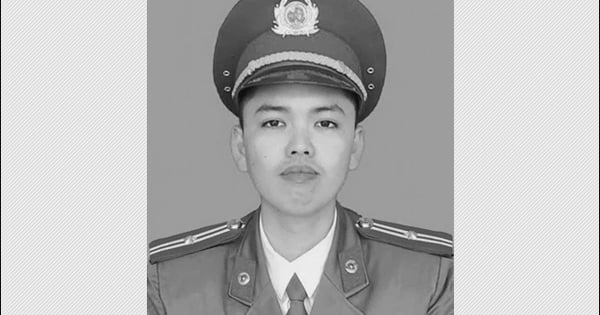






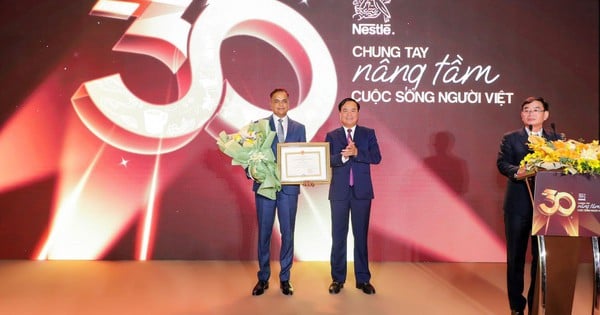
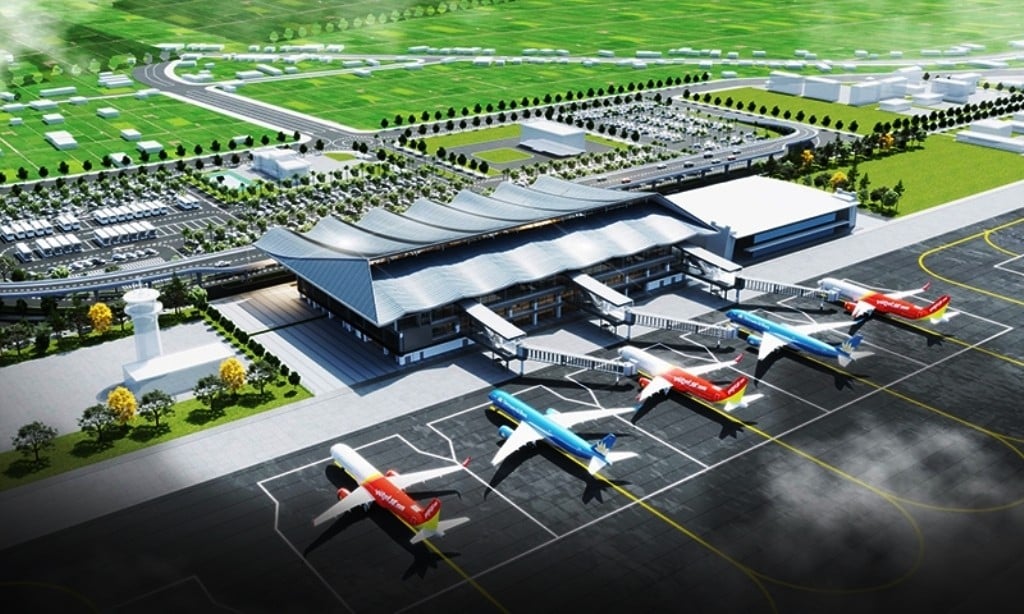
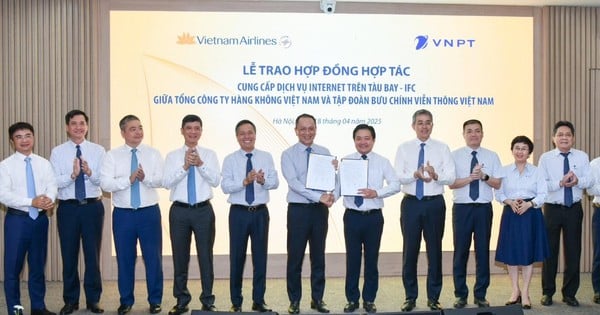







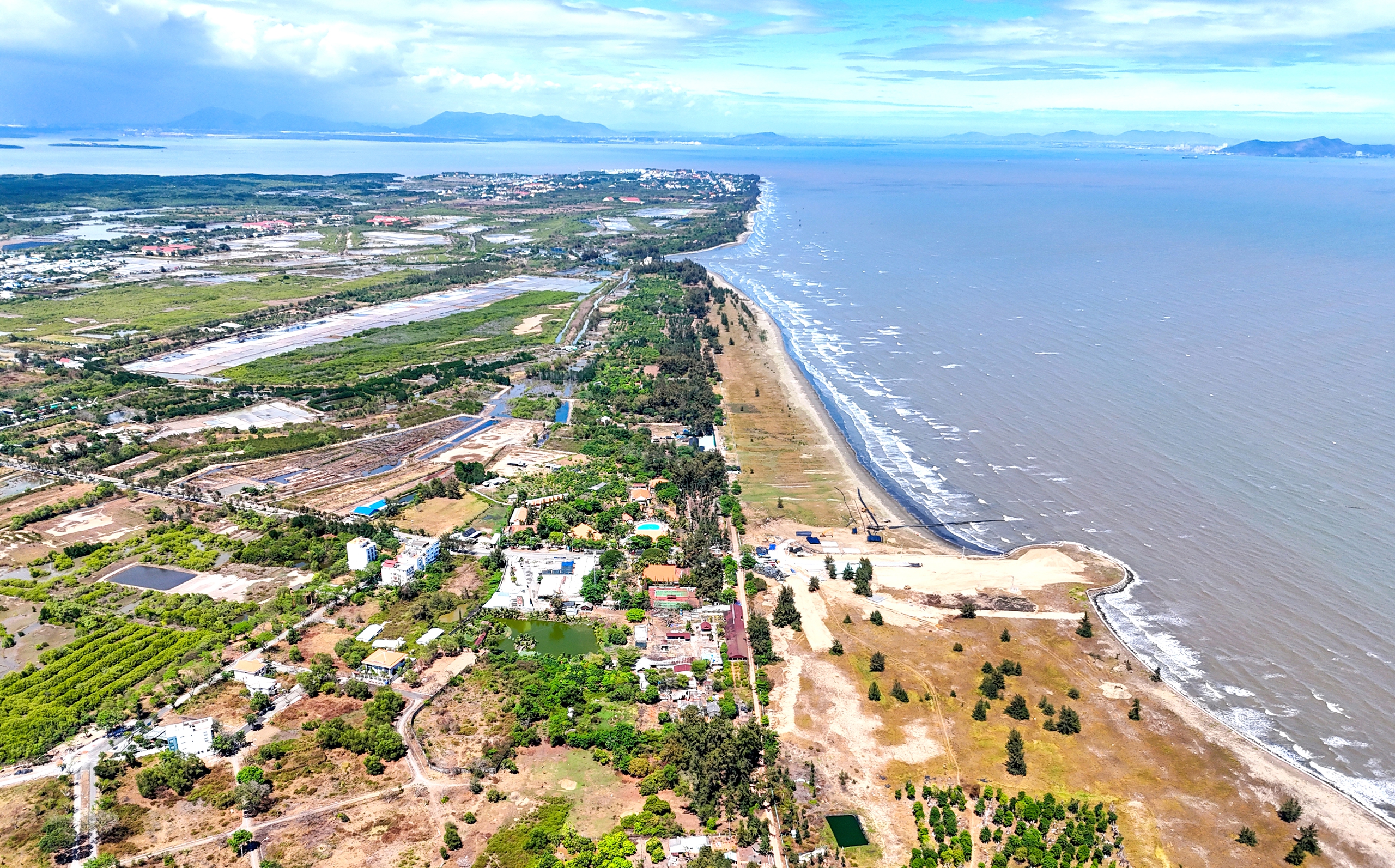




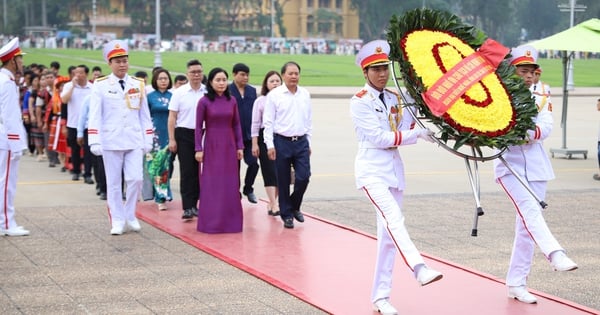


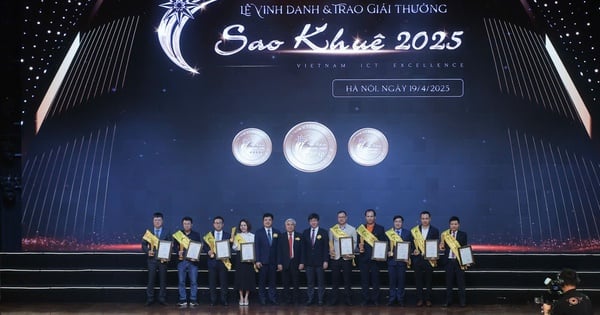

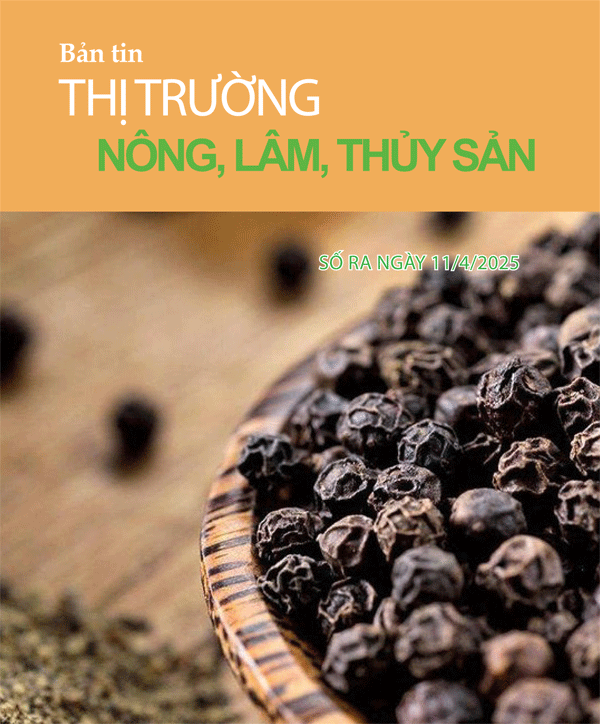

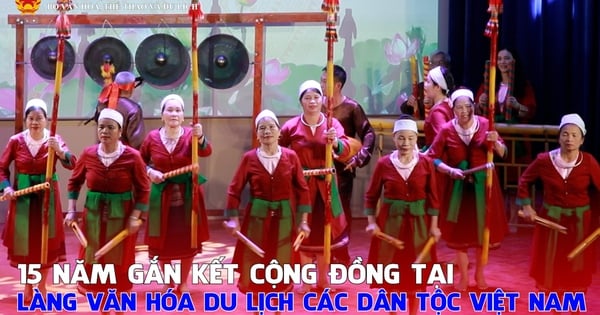
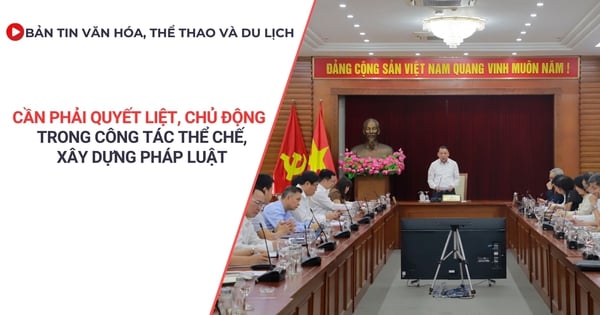
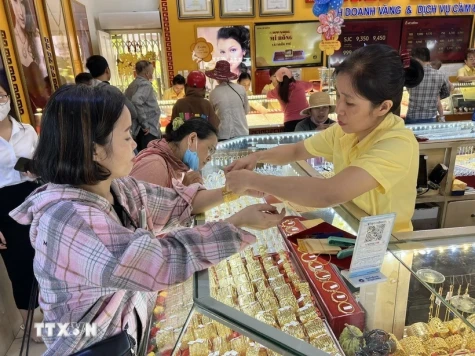

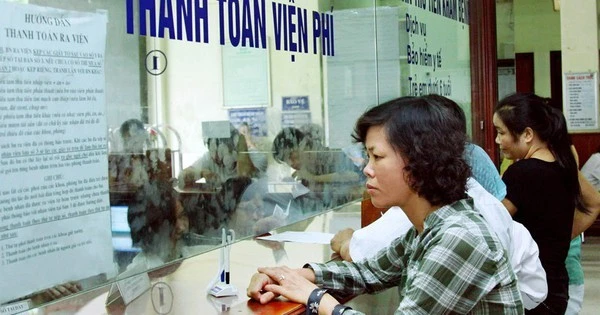

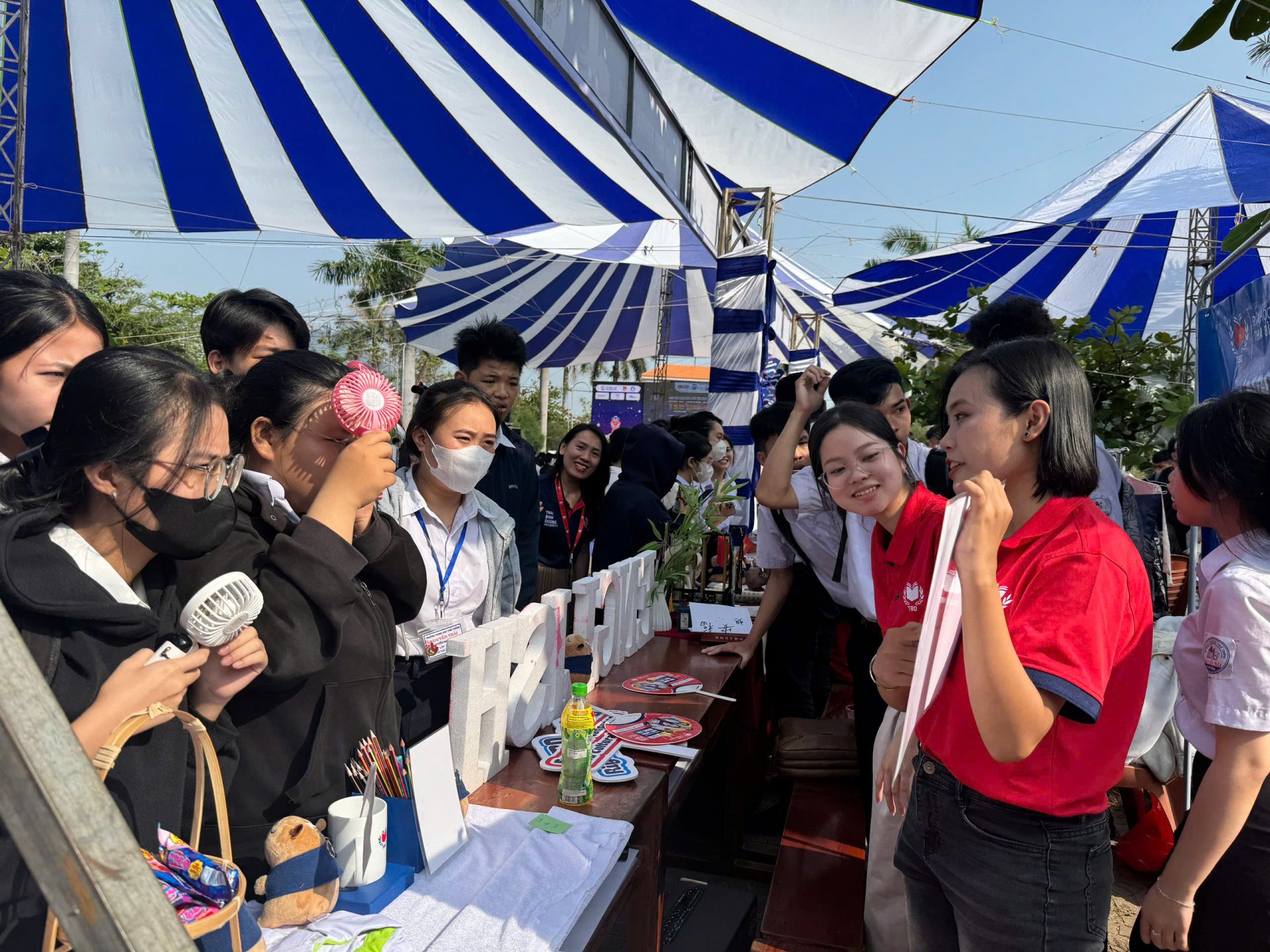

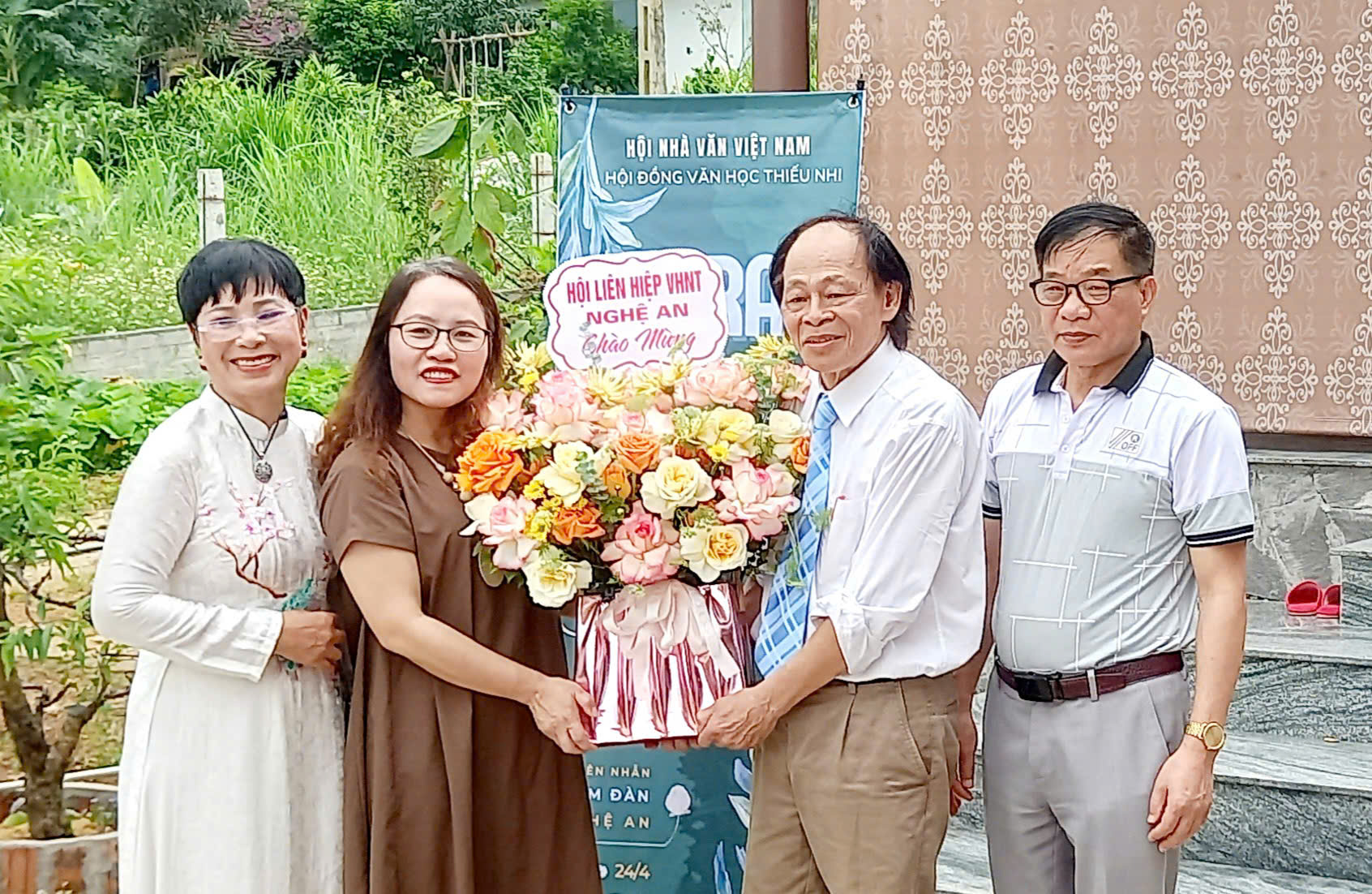
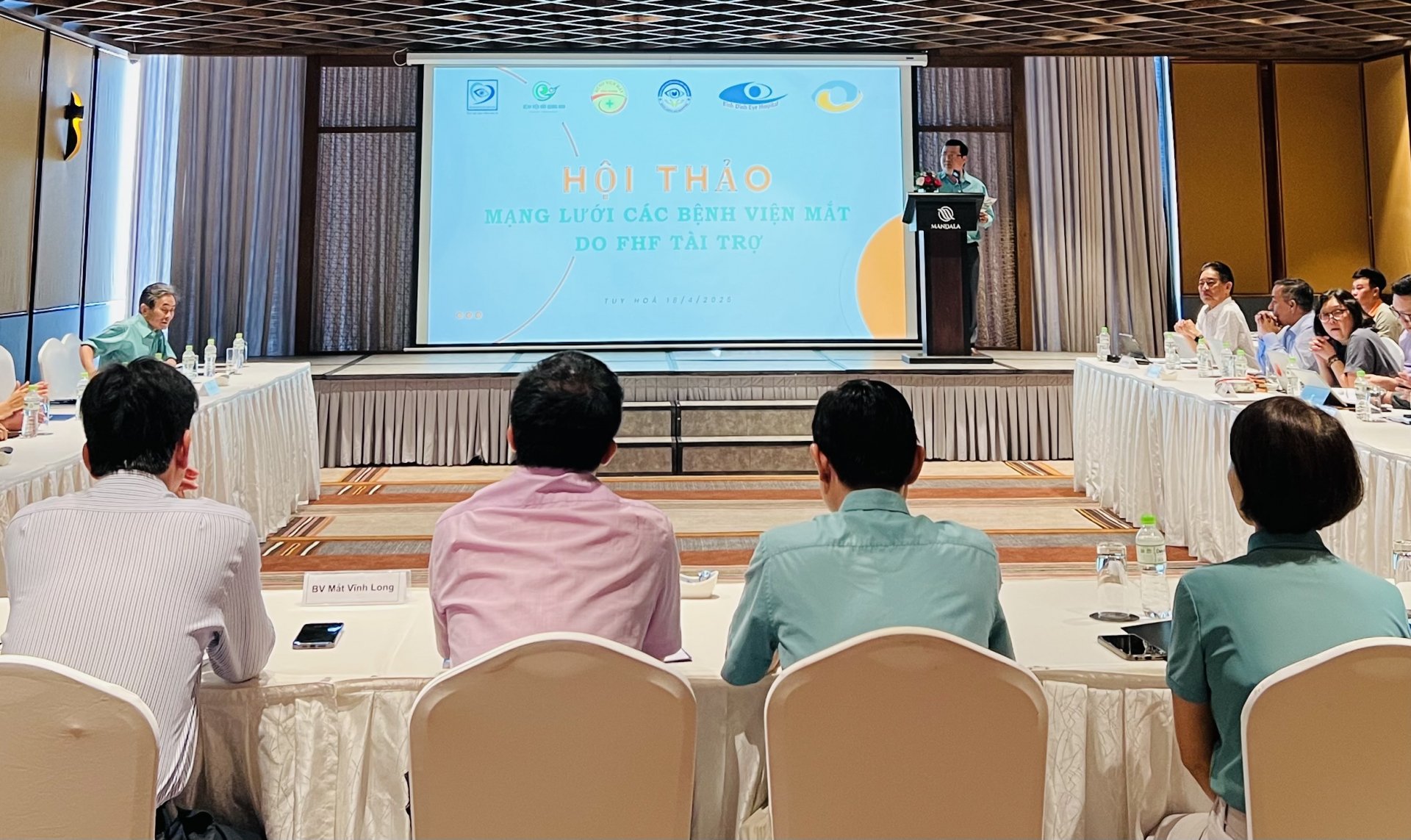
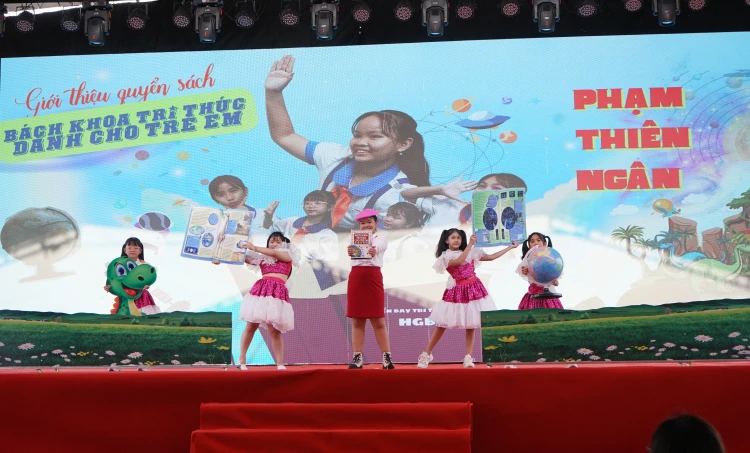










Comment (0)